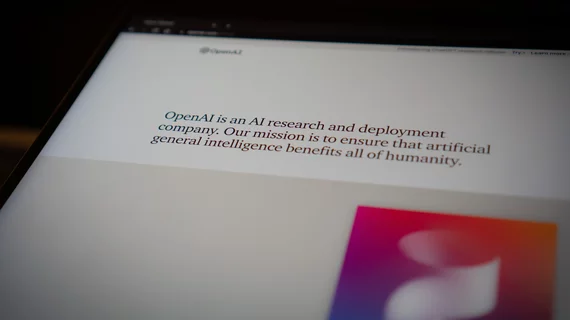Industry Watcher’s Digest
- Large language models have been game-changing AI ever since OpenAI unleashed its initial version of ChatGPT. Can you believe that was less than five months ago? Anyway, in healthcare, this and other forms of generative AI can be “hyper-personalized,” which makes the technology especially intriguing. So suggested Erik Barnett of Los Angeles-based IT consultancy Avanade at HIMSS23 in Chicago April 17. Barnett remarked that generative AI could serve as a “co-pilot,” helping healthcare navigate business and clinical problems while also bettering the care experience for patients (or passengers, to advance the analogy). HIMSS’s news team has more on the talk here, and the organization’s Healthcare IT News is reporting from the conference till its close on Friday.
- Google Cloud is laying advance access to Med-PaLM 2 at the feet of select healthcare customers. Med-PaLM 2 is the tech giant’s own large language model for medicine. The company is allowing the invitees to test-drive the nascent technology, explore its potential use cases and offer feedback on the user experience. Google says its aim is to see how Med-PaLM 2 might be used to “facilitate rich, informative discussions, answer complex medical questions, and find insights in complicated and unstructured medical texts.” Full announcement here.
- Philips and Amazon Web Services are putting heads together over generative AI. The partnership, which is not new but expanded, includes moving Philips’s picture archiving and communication system (PACS) to AWS. It also will afford Philips access to Amazon Bedrock for developing AI-based applications more quickly than if the company were to build foundation model AI from scratch. Full announcement from Philips here.
- An AI model has shown impressive prognostic chops for gauging the aggressiveness of colorectal cancers. Developed at Harvard Medical School and National Cheng Kung University in Taiwan, the system needs only histopathology images to guide therapy decisions and estimate the likelihood of tumor recurrence after treatment. The researchers say their model is meant to aid and not replace human pathologists. Harvard news item here, journal study here.
- As a practicing internist, Marc Siegel, MD, has a big problem with healthcare payers tempted to sneakily use AI for performing prior authorizations. “I can envision a future where fights for insurance coverage become even more escalated than they are already—and where personalized medicine is replaced by algorithms,” the media maven/popular doctor writes in an opinion piece published April 17 in USA Today. “What’s to stop insurance companies from replacing me with a cheaper, more predictable AI robot who practices some of the science but none of the art of medicine?” Read the whole thing.
- AI startup integrate.ai (Toronto) has taken a central role in the Canadian Platform for Genomics and Precision Health (CP4GPH). The software platform’s mission includes using AI to wring practical patient-care insights from mass stores of scattered data. Integrate.ai founder and CEO Steve Irvine: “Canada’s biotech industry has made a considerable impact on the global stage, and this project will put Canada at the forefront of precision health—driving innovation, enabling job creation and cultivating high-value research and discovery.” Full announcement here.

